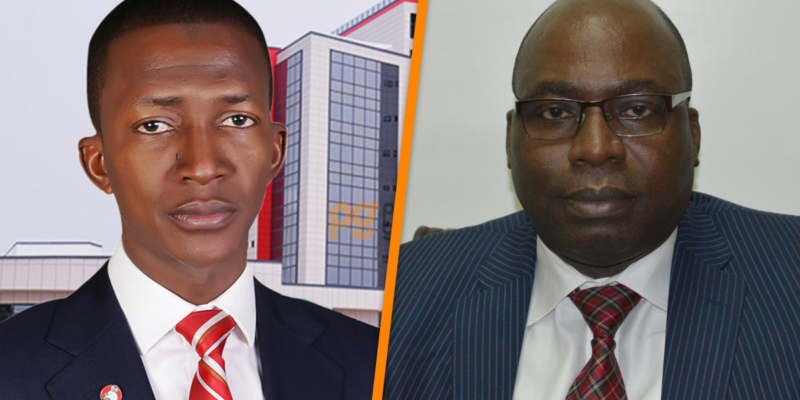
EFCC Chairman Abdulrasheed Bawa, and ICPC Chariman Prof. Bolaji Owasanoye
Umar Yakubu, the Executive Director of the Centre for Fiscal Transparency and Integrity Watch (CeFTiW), has called on ministries, departments, and agencies (MDAs) to raise the bar in the fight against corruption to save the economy from collapse.
The CeFTiW Director stated, “Prosecuting corruption is not cheap, and most of the time, it is difficult to get access to recovery, so the whole message is about prevention of corruption which cascades into good governance.”
Mr Yakubu made the call in Abuja on Thursday at a workshop of the Transparency and Integrity Index methodology handbook on anti-corruption.
He said the handbook was expected to promote transparency and develop strong preventive mechanisms against corruption.
Mr Yakubu added that the handbook would assist public institutions in improving their performance across the various indicators used for ensuring compliance with public regulations.
“The Transparency and Integrity Index (TII) methodology, therefore, employs six parameter indices to benchmark the performances of MDAs toward good governance in certain critical areas,” Mr Yakubu explained. “They are website integrity, fiscal transparency, open procurement and contracting, budget implementation, inclusion and citizens engagement, as well as human resources.”
According to him, the programme’s purpose was to draw the government’s attention at the federal, state and local levels to the criteria to promote transparency in governance across five major thematic areas.
“When we started in 2021, the highest score was 32.9 out of 100 marks, but in 2022, the Development Bank of Nigeria scored 52, so if you can get a 20-percentage increase within one year, I think it is a good development,” said Mr Yakubu.
He added, “But, a lot of other agencies are not doing so well, but with this kind of engagement, we expect them to improve. What we assess is the availability of the information on the website, and we are collaborating with other CSOs on anti-corruption to ensure that the information being put out is actually true.”
Dasuki Arabi, the director-general of the Bureau of Public Service Reform (BPSR), in his assessment of MDAs, said they would continue to work with CeFTiW to deepen transparency and accountability across public institutions.
Mr Arabi said the workshop aimed to acquaint participants with the requirements necessary to discharge their duties creditably and ensure the principles of accountability and transparency in their respective organisations.
“The bureau drew her inspiration to partner with the CeFTIW on the Transparency and Integrity Index (TII), based on her strategic role as a driver of Public Service Reforms across MDAs,” he stressed.
The BPSR director-general also mentioned that the Public Financial Management of the National Strategy for Public Service Reforms “seek to achieve strategic, efficient and effective mobilisation, allocation and use of public resources as well as ensure fiscal discipline, transparency, integrity and accountability through timely reporting.”
The position was also reinforced by the BPSR’s role as a member of various inter-ministerial anti-corruption agencies and the underlying objective of driving public engagement in line with its statutory role in the implementation of this objective, explained Mr Arabi.
“It is also informed in the quest to put in place machinery and institutional arrangements aimed at providing a common vision and long-term agenda to position the country among major players in the global economy in the year 2050,” he added.

Comments